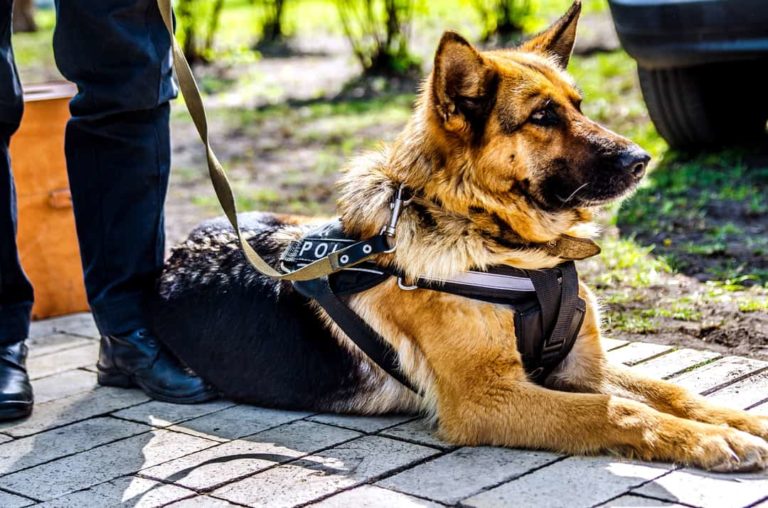Police dogs have their own special day this month (National Police Dog Day is on May 15), and it’s easy to see why. Working dogs whose job it is to help law enforcement protect the public are among the most important canines in our society.
Scientists aren’t sure if dogs were originally domesticated for their guarding abilities (it could have been their hunting skills instead), but whatever the reason, it didn’t take long for ancient humans to start relying on the dog’s fierce instinct for protection.
History of Security Dogs
The ancient Romans were one of the first cultures to use dogs for security. A tour through the ruins of Pompeii, the ancient Roman city destroyed by a volcano in 79 AD, reveals evidence that guard dogs protected many of the homes in the city.
During the Middle Ages, dogs were used for law enforcement in parts of Europe, mostly to hunt down criminals. Bloodhounds were preferred in Scotland because of their superior ability to track by scent.
In the late 1800s, dogs started to become known as valuable partners in police work. London police used Bloodhounds to search for Jack the Ripper in 1888, while other dogs accompanied British police on their beats.
The Start of Police Dog Training
The first formal training of police dogs began in Belgium in 1899. The success of this program brought attention to the valuable help dogs could provide in security work. By 1910, the Germans had made police dogs a common site in cities throughout the country. They chose the German Shepherd as their breed of choice, and the first police dog training school was opened in 1920 in the town of Greenheide.
Dogs didn’t become part of police work in the United States until the 1970s. Now, canine officers are common in police forces throughout the U.S. They are also used by the U.S. military for patrol and detection work, and the Central Intelligence Agency (CIA) for finding and apprehending criminals.
Police dogs are usually trained to perform one or two special functions, depending on their breed and temperament:
- Apprehension and attack — Dogs trained in apprehending and subduing suspects work alongside law enforcement officers in cities around the world. German Shepherds, Belgion Malinois, Belgian Turveren Dutch Shepherds, Doberman Pinschers and Giant Schnauzers are most commonly used for these tasks.
- Search and rescue —Dogs trained in search and rescue can locate suspects or search for missing people. They are used in police work to help find escaped prisoners, fugitives and lost or missing at-risk people. Labrador Retrievers are commonly used in search and rescue, along with Golden Retrievers, Bloodhounds, Belgian Malinois, Dutch Shepherds, Giant Schnauzers and German Shepherds.
- Detection — Detection dogs specialize in sniffing out drugs and explosives. They do their job at border crossings, airports and shipping facilities. The breeds most often used for this work are German Shepherds, Labrador Retrievers, Belgian Malinois, Dutch Shepherds, Basset Hounds, Beagles, Spring Spaniels and Giant Schnauzers. Other dog are sometimes used for detection work, like Border Collies, German Shorthaired Pointers and mixed breeds.
It can take years to train a highly skilled police dog. All working dogs start with basic obedience training and then go on to more specialized training, depending on the particular work they are destined to perform.
Most police dogs live with their handlers, and are treated like family pets when they are off duty. They often form strong bonds with their handlers, and are considered important partners in maintaining law and order by police officials around the world.





